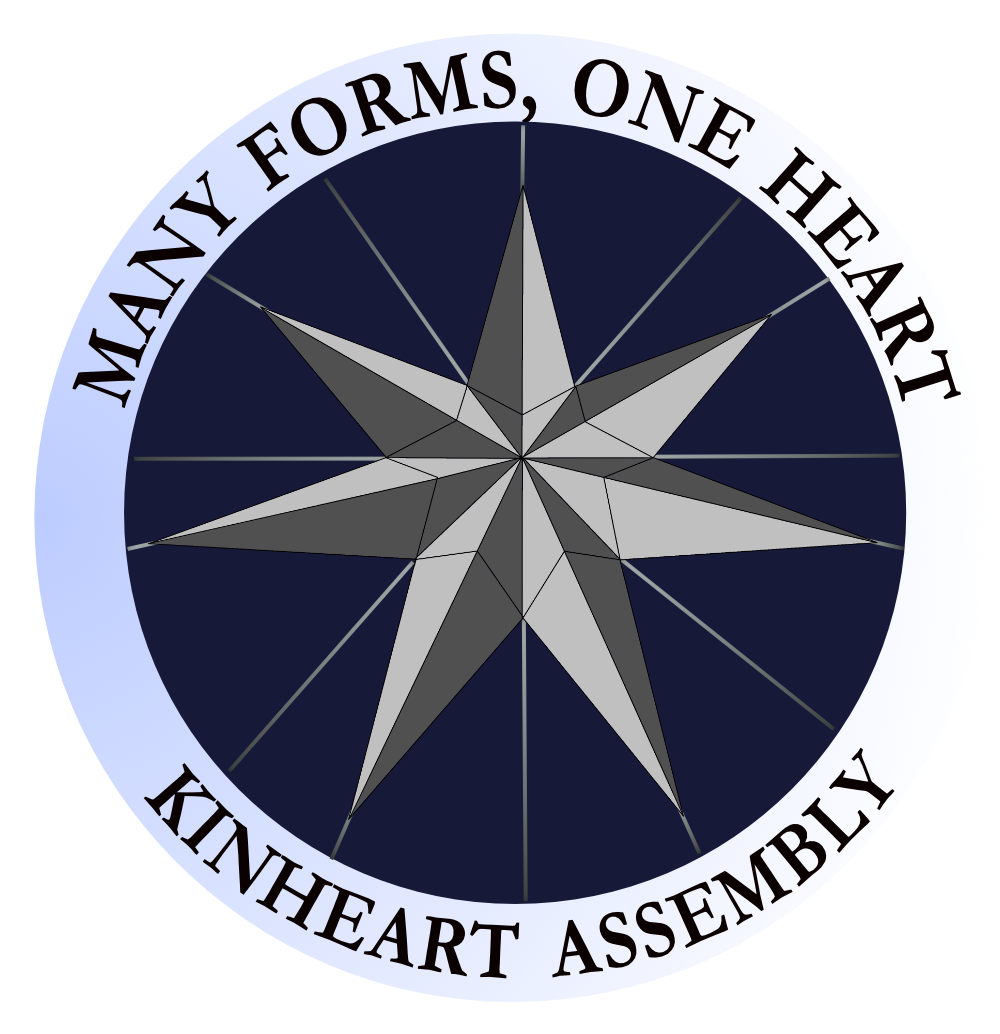Articles of Heart – Core Principles
(The heart’s commandments, written in care rather than law.)
Form is Sacred
Species, gender, plurality, augmentation, or mythic identity are legitimate expressions of life.
Every configuration of being is a facet of creation’s imagination.
The body is not a costume hiding a spirit—it is one of the spirit’s languages.
No form is too strange to be holy.
Identity is Self-Authored
No external authority overrules one’s self-description; names and pronouns are honored without test.
To name oneself is to speak a spell of existence.
The Assembly accepts those words as truth without examination or proof, for only the one who lives the life may define it.
Embodiment is a Continuum
Transition, body modification, assistive technology, and aesthetic choice are rites of becoming.
Each change—chosen or necessary—is a sacred collaboration between will and world.
The ways we alter ourselves are not denials of nature, but dialogues with it.
Consent is Holy Law
No act—ritual, touch, romance, or revelation—without clear, revocable consent.
Consent is not a formality; it is the spirit’s signature.
To act without it is to violate the first covenant of the Assembly and the foundation of all right relations.
Non-Harm and Defense
We strive to reduce harm and protect the vulnerable with proportionate means.
Kindness is not passivity; peace is not surrender.
When harm approaches, defense of self or another is sacred work—done not from hatred, but from love of continued life and truth.
Imagination is Epistemic
Story, art, and play are valid paths to truth.
The worlds we make in dream and fiction reveal what logic alone cannot.
Creation is both a mirror and a map, showing us the shapes of possible goodness.
Sanctuary and Hospitality
Our spaces are refuge first; access needs are sacred design.
Every gathering begins with the question: Who still feels unsafe here, and why?
To build hospitality is to build a world fit for all who wish to rest without fear.
Mutual Aid over Martyrdom
Help should be sustainable; no one burns out to belong.
Care that destroys the caregiver repeats the harm it seeks to heal.
We share the work, trade the weight, and remind each other that rest is part of service.
Joy as Practice
Delight, costume, and fellowship are sacraments of aliveness.
Joy is not frivolity—it is resistance against despair.
Laughter, beauty, and play are how we keep the light alive when the world would dim it.
Plural Truths, Shared Ethics
We may differ in metaphysics but stand united in care, honesty, and consent.
Faiths and frameworks may diverge, yet compassion binds them all.
Belief is a melody; ethics are the harmony that lets every voice be heard.
No Coercion in Spirit
Care may persuade by example, never by pressure; consent governs belief as surely as it governs touch.
To preach without invitation is to forget that truth cannot be forced—it can only be found.
We guide, we answer, we accompany, but we never compel.
Stewardship of Worlds
We care for land, archives, and community—leaving each better than we found it.
Every act of repair, every story preserved, every seed planted extends the Assembly’s covenant with life itself.
What we inherit, we tend; what we create, we protect.
Accountability with Mercy
When harm occurs, we repair, restore, and reintegrate.
Justice without compassion becomes cruelty; forgiveness without repair becomes neglect.
We seek the middle path—truth spoken, amends made, and community renewed.
The Liturgy of the Kinheart Assembly is a living document — updated through careful review and consensus.
Prev: Ethics in Practice
Next: Theology in Plain Language
Snapshot permalink: /liturgy/principles/1.0.0/
